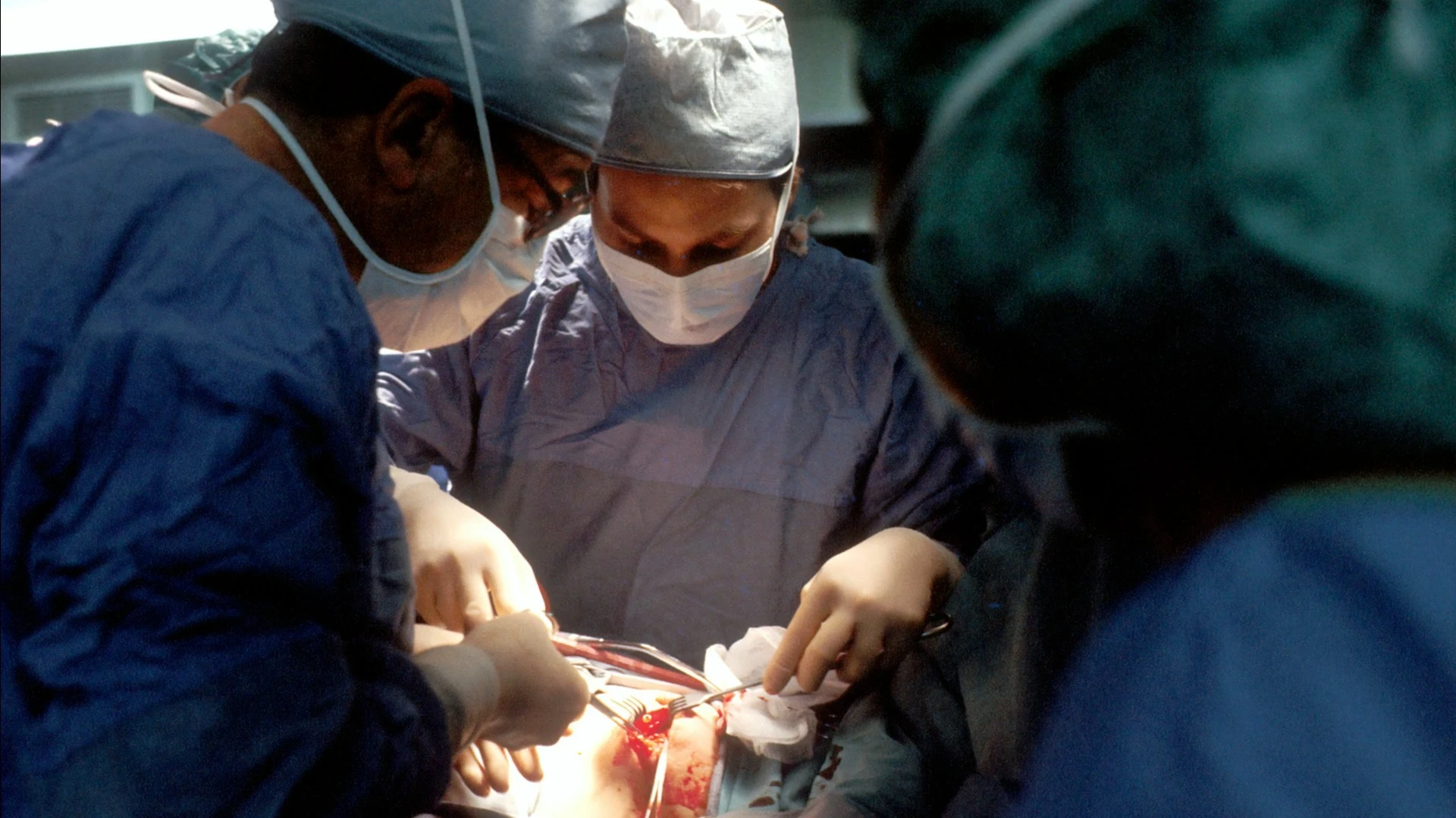
If the trend of antibiotics becoming ineffective continues, even routine surgeries will become dangerous. / Photo: Unsplash/National Cancer Institute
Acurx Pharmaceuticals, a drugmaker developing new types of antibiotics, aims to combat the growing issue of antimicrobial resistance. It has a market capitalization of just $13.3 million, but analysts see massive upside for the stock.
Antimicrobial drugs
Every 11 seconds, someone gets an antibiotic-resistant infection, and every 15 minutes, someone dies from resulting diseases, according to the U.S. Centers for Disease Control and Prevention (CDC).
Predictive statistical models indicate that in 2019, antibiotic resistance directly caused 1.27 million deaths and contributed to 4.95 million more, according to a 2022 article in the Lancet, a peer-reviewed medical journal. The study analyzed data from 204 countries.
The World Health Organization (WHO) warns that antibiotic resistance threatens many advances in modern medicine. It complicates infection treatment and makes other procedures, such as surgery, cesarean sections, and cancer chemotherapy, riskier. In 2017, the World Bank estimated that it could lead to an additional $1 trillion in global healthcare costs by 2050 and a global GDP loss of $1.0-3.4 trillion by 2030.
Despite the scale of the problem, the number of antimicrobial drug development projects remains “dangerously inadequate,” the WHO argues. According to the organization’s latest annual report, published in June 2024, there are only 92 products in clinical development. One of them is from the micro-cap Acurx Pharmaceuticals.
What Acurx does and why it matters
Acurx was founded in 2017 by David Luci, Robert DeLuccia, and Robert Shawah. It was the second joint project for Luci and DeLuccia, who had previously cofounded Dipexium Pharmaceuticals, a maker of antibiotics for skin infections (acquired by PLX Pharma in 2017).
Acurx develops new types of antibiotics for infections caused by bacteria listed as priority pathogens by the WHO, CDC, and U.S. Food and Drug Administration (FDA).
Its lead drug candidate, ibezapolstat, is designed to treat infections caused by Clostridium difficile (CDI), a bacterium that triggers inflammation of the colon. High-risk groups include cancer and diabetes patients, the elderly, post-surgical patients, and people who have taken antibiotics.
Ibezapolstat was initially developed by GLSynthesis. In 2018, Acurx acquired worldwide rights to manufacture, develop, and commercialize the drug for $110,174 in cash and 100,000 Class B Acurx shares. Additionally, the company agreed to pay up to $700,000 if clinical trials were successful.
In its 2023 report, Acurx states that over a million CDI cases are reported annually in the U.S. and Europe. Only three antibiotics are currently available for CDI infections. In addition, they disrupt the gut microbiota and have a recurrence rate of 20-40%, the company notes. A fourth antibiotic was under development by Summit Therapeutics but failed in its final, phase III clinical trials.
Acurx's drug completed phase II trials in October 2024. The results showed that ibezapolstat effectively targets bacteria without causing cross-resistance to other antibiotics — in other words, it may succeed where other antibiotics fail.
Earlier, the FDA had designated ibezapolstat a “qualified infectious disease product” (QIDP) and fast-tracked its development. The QIDP status provides priority review and an additional five years of market exclusivity, preventing other companies from launching drugs with the same active ingredient during that period, while the fast-track designation also expedites the regulatory review process.
According to Acurx estimates, if ibezapolstat is approved, it could capture over 40% of the CDI market, which is conservatively valued at over $1 billion annually in the U.S. alone.
“This market opportunity… provides significant upside potential for those investing at this early stage of development,” Acurx noted in its 2023 report. “We believe the size of the market and relatively few treatment options available will drive our market capitalization.”
The company has also stated that it is exploring partnerships with other pharmaceutical firms, mergers, or a potential sale.
For investors
Acurx has operated at a loss since its inception. In 2023, it reported a net loss of $14.6 million ($1.15 per share). For the first nine months of 2024, the net loss stood at $11.3 million ($0.71 per share) versus a net loss of $9.5 million ($0.77 per share) in the previous-year period.
The company has warned that losses will continue to mount amid spending on R&D, production scaling, personnel, management system improvements, and more.
Acurx funds its operations through equity. In June 2021, it went public and raised $14.8 million (after expenses). Later, it raised another $9.7 million from direct stock offerings across multiple transactions.
Seeking Alpha fingers financing as the company’s Achilles' heel. During its third-quarter 2024 earnings call, Acurx revealed that phase III trials for ibezapolstat would cost $50 million, as reported by Investing.com. That is nearly four times the company’s market capitalization. So as to avoid diluting existing shareholders, Acurx is seeking financial support from partners and government programs. In addition, Acurx's drug candidate for anthrax may qualify for government funding. In September 2024, the company reported that the drug had demonstrated effectiveness against the disease in early-stage studies.
Simply Wall St. has highlighted high stock volatility as another risk. Acurx is down almost 77% over the last 12 months and more than 16% for the year to date.
According to MarketWatch, the name has two “buy” ratings, with an average target price of $11 per share, implying 1,512% upside versus the closing price on February 20.
